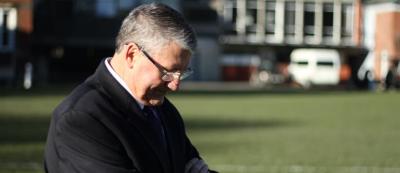But one of things that I keep coming back to with my memories and musings is what an ordinary extraordinary man he was. For Jim, politics was first and foremost about people. At the heart of his career and everything he did in public life, was a strong sense of compassion.
Jim approached every decision in public life through the lens of what would it mean for the people he represented. At the height of the often lonely battles of the 1980s against Rogernomics, Jim told me he was driven by stories he saw of people he knew in his community, including people on his electorate committee who lost their jobs, and along with it their hope and their dignity.
Politics never seemed overly theoretical or complicated for Jim. Rather, he was a man who had a hardwired political compass that knew right from wrong. What mattered to him was what happened to people - to their lives and their aspirations.
Jim became my local MP when I was nine years old. I can still vividly remember watching him hold a street corner meeting outside our house in 1984. I was curious and captivated by what I saw. Growing up in 1980s South Christchurch, it seemed to me that there was a magical figure that if something went wrong people went and saw him and he fixed it.
When the Christchurch City Council wanted to chop down the trees in our street, my mother and some of the neighbours called in Jim. The trees remained. He didn’t treat that small local issue any differently to how he treated major events like setting up KiwiBank. All politics were local for Jim.
Continue here to read the full article on Newsroom || january 11, 2018 |||





